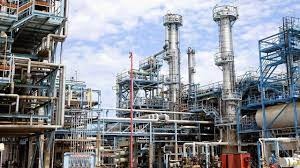Nigeria’s crude oil production fell to 1,294,162 barrels per day in July 2023, according to data from the Nigerian Upstream Petroleum Regulatory Commission (NUPRC). This decline is attributed to various factors including disruptions at key oil terminals and incidents of crude oil theft.
In July, Nigeria produced 1,081,396 barrels of crude oil per day, along with 38,258 barrels per day of blended condensate and 174,509 barrels per day of unblended condensates, resulting in a total production of 1,294,162 barrels per day.
The Forcados terminal, a significant hub in Nigeria’s oil infrastructure, experienced an outage due to the discovery of sheen at the facility, leading to a suspension of activities. This contributed to a notable decrease in crude output, with the terminal producing 3,286,735 barrels in July compared to 7,898,226 barrels in June.
Other major terminals also reported decreased production numbers. The Bonny terminal produced 2,606,500 barrels in July, down from 3,214,900 barrels in June. Similarly, the Brass terminal reported 987,114 barrels in July compared to 1,136,446 barrels in June. The Odudu (Amenam blend) terminal recorded 2,934,411 barrels in July, a decrease from 3,109,894 barrels in June.
In contrast, the Qua Iboe terminal saw an increase in production, reaching 4,123,574 barrels in July compared to 3,788,731 barrels in June. The Escravos oil terminal also boosted production, yielding 4,866,131 barrels in July, up from 4,475,298 barrels in June.
Nigeria continues to face challenges from crude oil theft, with the Nigerian National Petroleum Company Limited reporting 240 incidents of crude oil theft between July 15 and July 21, and 139 incidents between July 22 and July 28.
The fluctuating crude oil production levels highlight the complex factors influencing Nigeria’s oil industry, including terminal disruptions, theft, and market dynamics.










